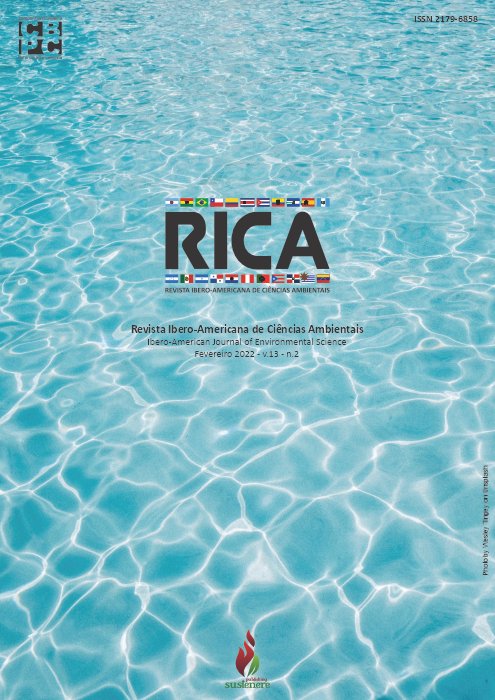Pesticides in Guarani Aquifer System groundwaters in a sugarcane monoculture area
DOI:
https://doi.org/10.6008/CBPC2179-6858.2022.002.0005Keywords:
Drinkwater, Guarani Aquifer, Sugarcane, Gas chromatography, PesticidesAbstract
The Guarani Aquifer System (GAS) is one of the largest groundwater reservoirs in Brazil and in the world, which supplies the entire Ribeirão Preto municipality. The aim of this study was to simultaneously determine pesticides for sugarcane use in water samples from GAS recharge areas. Samples from 11 wells were analyzed during the rainy and dry seasons. In the rainy season, traces of metribuzim were detected, a molecule characterized by high water solubility and low retention in organic matter. In the dry period, diazinone and fenitrothion molecules were detected, those were possible interfering agents that may be being used in the municipality's crops. The results demonstrate that the GAS waters in Ribeirão Preto are being contaminated by pesticides. Despite the concentrations being below the limits determined by Ordinance No. 888 of the Ministry of Health (2021), the findings of the present study indicate that the monitoring of the water quality in areas of GAS recharge should be continuous, to verify possible risks to the health of the supplied population.
Downloads
Downloads
Published
Issue
Section
License
Copyright (c) 2022 Ibero-American Journal of Environmental Sciences

This work is licensed under a Creative Commons Attribution-NonCommercial-NoDerivatives 4.0 International License.
The CBPC - Companhia Brasileira de Produção Científica (Brazil CNPJ: 11.221.422/0001-03) the material rights of the published works. The rights relate to the publication of the work anywhere in the world, including rights to renewals, expansions and dissemination of the contribution, as well as other subsidiary rights. All electronically published works may subsequently be published in printed collections under the coordination of this company and / or its partners. The authors preserve the copyright, but are not allowed to publish the contribution in another medium, printed or digital, in Portuguese or in translation.









